Estimated reading time: 8 minutes
If you’re a cat parent, you might have noticed your feline friend seems less plush than before. Cats are known for their sleek and agile build, but what if you start to feel more bone than fluff when petting them?
It’s worrying to see your beloved pet shrink in size, and it can leave you searching anxiously for answers.
Did you know that up to 90% of cats over the age of 12 experience weight loss due to various health concerns? This startling statistic highlights that slimming down isn’t just about skipping treats.
In this article, we’ll delve into the common factors that cause weight loss in cats, and address the signs to watch out for. We’ll guide you through each step from identifying potential issues to seeking proper treatment – ensuring your kitty gets back on track to a healthy weight.
Key Takeaways
- Pay attention if your cat’s appetite decreases or they look thinner—it might be sick.
- Changes at home, worms, or illnesses like diabetes can make cats lose weight.
- Seek veterinary assistance if you notice your cat is losing weight. They can help to diagnose the issues and improve your cat’s health.
- Provide your cat with high-quality food suited to their dietary needs and keep their living space calm to help them stay healthy.
Identifying Weight Loss in Cats
If you notice changes in your cat’s eating habits, such as decreased appetite or increased thirst, along with visible physical changes like a protruding spine or prominent hip bones, it may be a sign that your cat is losing weight.
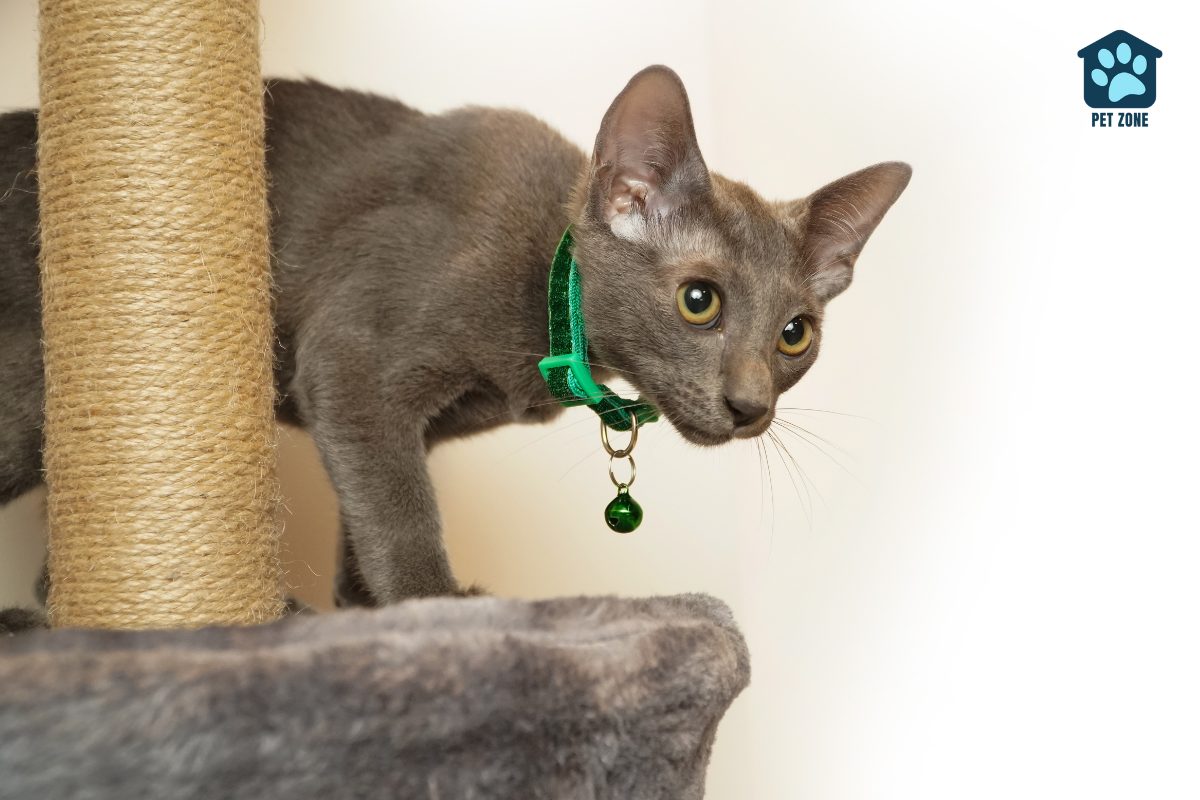
Changes in Eating Habits
Your cat’s food bowl can tell you a lot. Cats love to eat, so if they stop eating well or don’t seem interested in their meals, it could be a clue. They might walk away from the bowl after just a few bites. Watch how your cat eats—changes here may show that something’s not right.
Sometimes cats may start eating less because of tooth pain or other mouth issues. Older cats especially might find it hard to chew dry food which can cause them to lose weight. Check your pet’s teeth and gums for any signs of trouble, like redness or bad breath.
Visible Changes in Physical Appearance
Cats getting skinny can show in their looks. You might see less fat and muscle on their bodies, making bones like the spine or ribs stand out more than before. Their coats may get dull and not as thick. This change isn’t just about looks—your cat could be dealing with something serious inside.
Weight loss makes a big difference in how your pet feels and moves around. If you notice that your cat is looking thinner or its fur isn’t shiny, it’s time to check with your vet. They’ll find out why this is happening and help your furry friend feel better.
Possible Reasons for Cat’s Weight Loss
Possible causes of weight loss could include stress or changes in the home environment, parasitic infections such as worms, and underlying illnesses such as diabetes, hyperthyroidism, or renal disease.
These factors can significantly impact your cat’s health and should be addressed with the help of a veterinarian to ensure proper treatment and care.
Stress or Changes in the Home
Cats feel stress just like we do. If something big changes in your home, it might upset your cat. Moving to a new place, adding a new pet or person to the family, or even changing up the furniture can make them stop eating as much.
You should watch if they act differently when things change at home. They might hide more, hiss, or not want to play. If you see this and they’re getting skinny too, they could be stressed out.
It’s important then to talk with a vet to figure out what is going on and how you can help your furry friend feel better and eat well again.
Parasitic Infections
Parasitic infections are one of the common reasons for weight loss in cats. Intestinal parasites like roundworms and tapeworms can disrupt your cat’s digestion, causing your cat to lose weight despite regular eating.
These parasites steal vital nutrients from your cat’s body, making it difficult for them to maintain a healthy weight. If you suspect parasitic infections, ensure to consult with your vet for appropriate deworming treatment and preventive measures.
In addition, intestinal parasites may not always be visible in your cat’s stool, so regular check-ups and fecal tests at the veterinarian are crucial in identifying and addressing any potential parasitic issues.
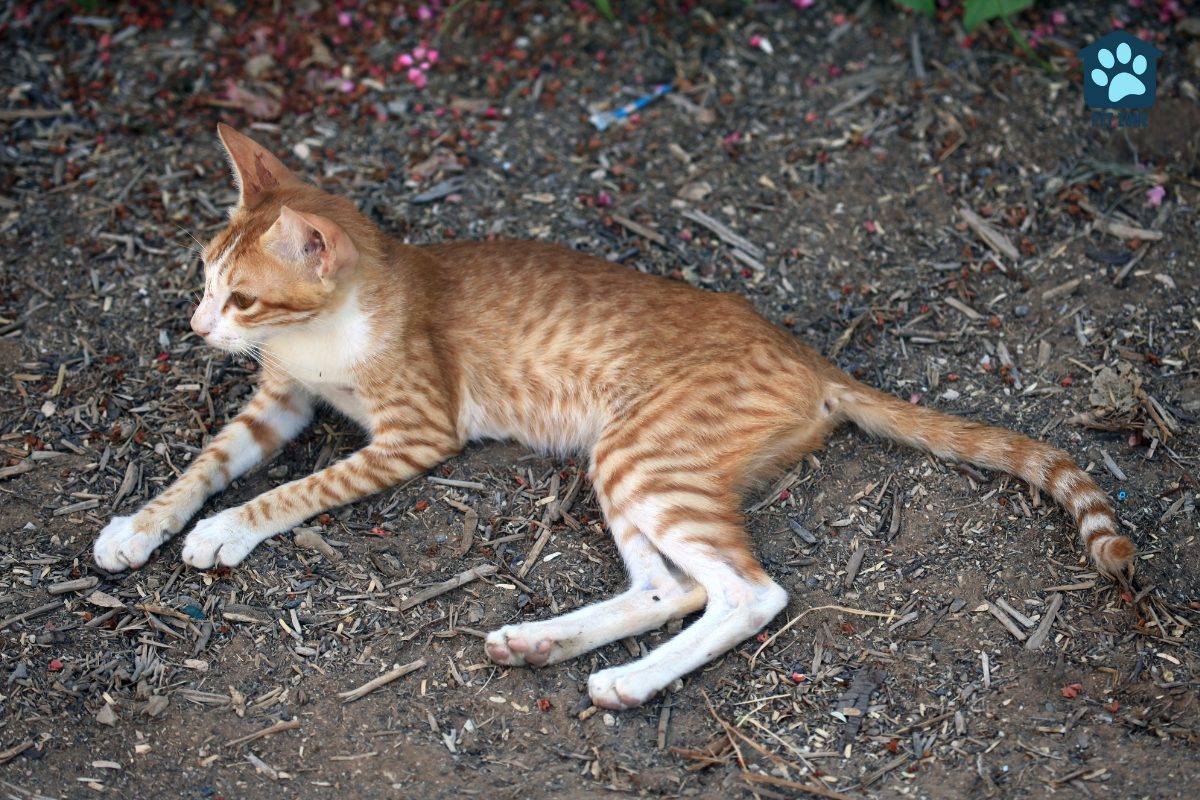
Illnesses such as Diabetes, Hyperthyroidism, or Renal Disease
Cats can lose weight if they have illnesses like diabetes, hyperthyroidism, or renal disease. These conditions affect the way their bodies work.
Feline diabetes happens when cats cannot produce enough insulin to balance their blood sugar levels. This can lead to high blood sugar and a range of symptoms including increased thirst, excessive urination, weight loss, and lethargy. Without proper treatment, diabetes in cats can lead to complications such as ketoacidosis and organ damage.
Hyperthyroidism increases a cat’s metabolism due to an overactive thyroid gland. This can lead to symptoms such as weight loss, increased appetite, hyperactivity, vomiting, diarrhea, and an unkempt coat. It can also lead to more serious health issues such as heart problems and high blood pressure.
As for renal disease, it affects the kidneys’ ability to eliminate waste from the body through urine. This can result in the buildup of waste and toxins in the body, leading to various symptoms such as swelling, fatigue, and changes in urine production. Renal disease can be caused by various factors such as high blood pressure, diabetes, and genetic conditions.
When these health issues arise, cats may experience weight loss as a result of unbalanced bodily functions and reduced appetite.
Cat owners need to be aware of these possible illnesses because early detection can lead to better outcomes for your pet’s health. Observing changes in your cat’s behavior and physical appearance is crucial so that you can promptly seek veterinary care if needed.
Treating Cat Weight Loss
Treating cat weight loss requires a veterinarian’s expertise and guidance. Here are the steps to address your cat’s weight loss:
- Schedule a vet appointment immediately if you notice sudden or significant weight loss in your cat. This is vital for identifying the underlying cause.
- Work with your vet to create a tailored treatment plan that may involve dietary changes, medications, or other specific interventions to address the root cause of the weight loss.
- Ensure your cat receives regular veterinary check-ups and follow-up appointments to monitor progress and adjust treatment as necessary.
- Provide a high-quality, balanced diet that meets your cat’s nutritional needs, especially if dietary deficiencies are contributing to the weight loss.
- Create a stress-free environment at home for your cat as stress can impact eating habits and overall health.
- Weigh your cat regularly to monitor their progress.
Conclusion
In conclusion, understanding why your cat is getting skinny is crucial for their well-being. By monitoring eating habits and seeking veterinary attention, you can address potential issues early on.
Remember that regular check-ups and proper nutrition are essential for maintaining your cat’s health. Implementing these practical strategies will help ensure the happiness and longevity of your feline companion.
Don’t hesitate to consult with a professional if you notice any concerning changes in your cat’s weight or behavior.
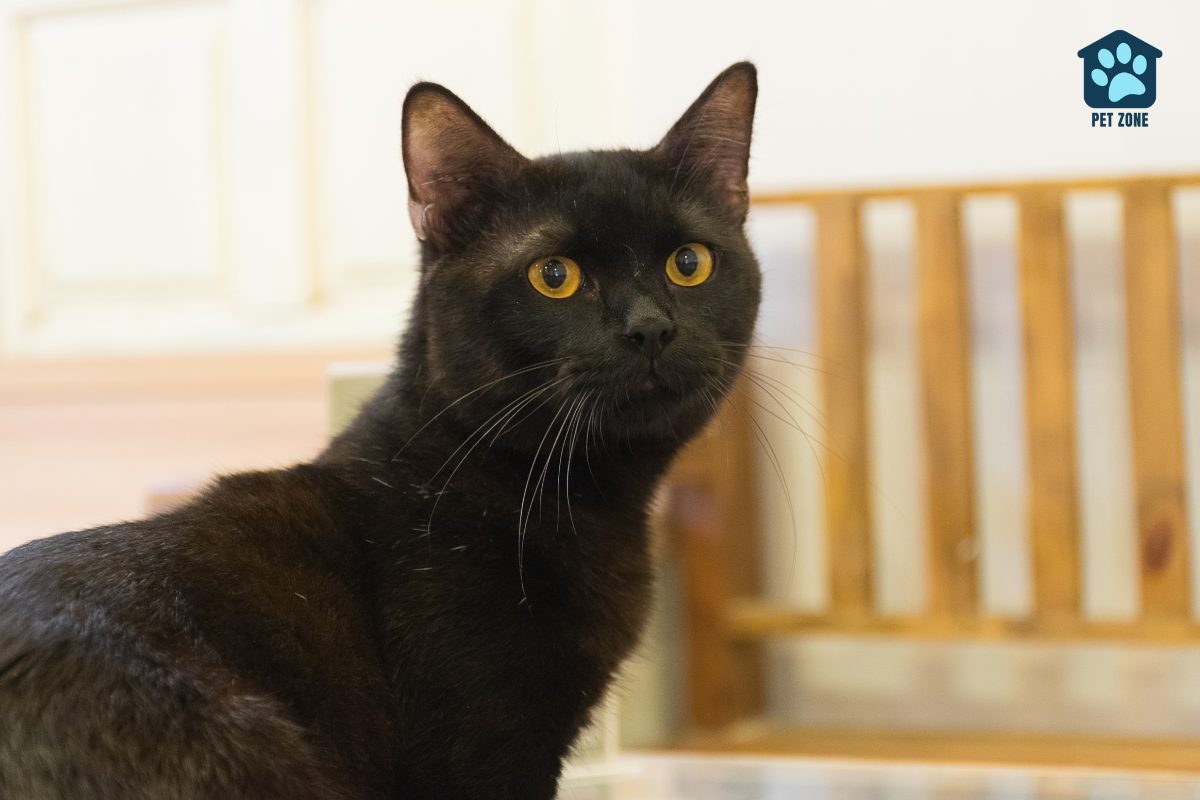
Frequently Asked Questions
A cat may lose weight for many reasons like dental issues, kidney disease, or less common ones such as hyperthyroidism which revs up thyroid hormone levels.
Feel your cat’s body and compare it to the back of your hand; if you notice bones easily, your cat might be underweight and should see a vet.
Yes, weight loss in senior cats is often linked to health conditions common at their age. Take your cat to the vet for checkups at least annually or more if they suggest it.
Your furry friend might have trouble eating due to tooth pain or they could be feeling sick – both can lead to not eating well.
Hyperthyroid cats burn through calories fast so they tend to get skinny; this may seem normal but it’s a sign of trouble.
It’s best not to try fixes at home without knowing why your cat may be losing weight. Make an appointment with your vet who knows just what tests and treatments are needed!
As an Amazon Associate I earn from qualifying purchases.
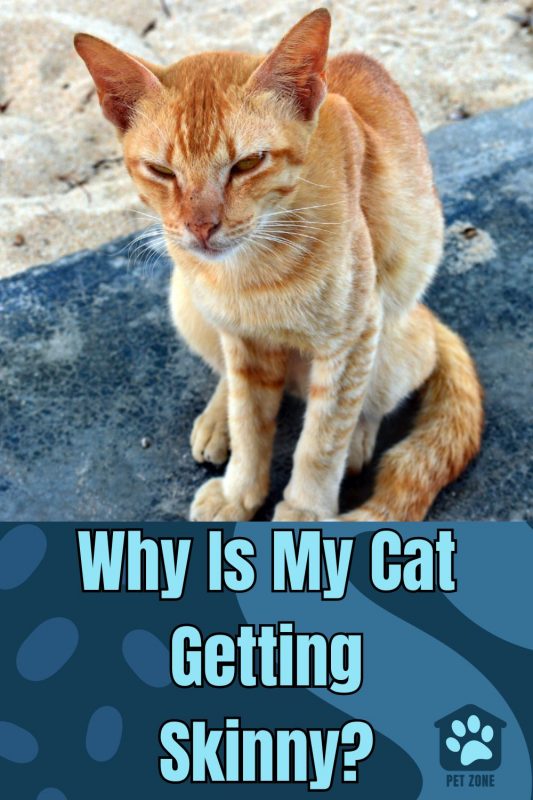


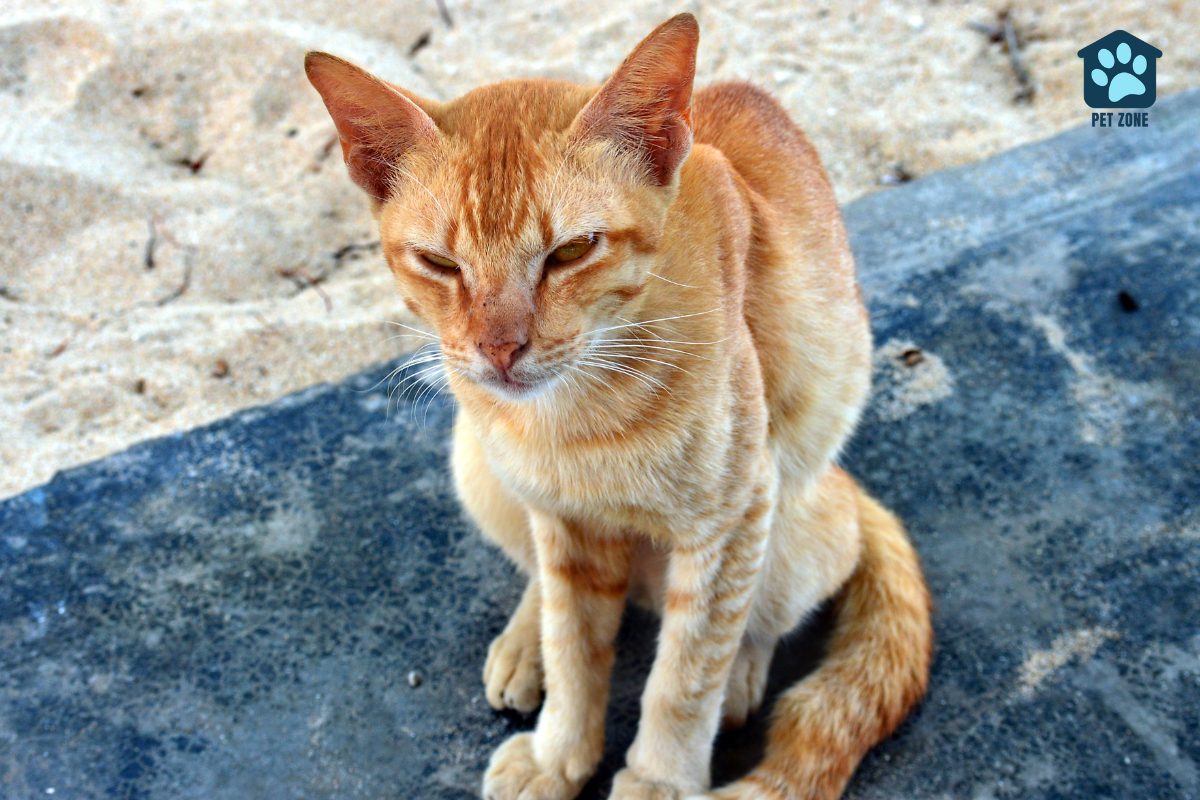
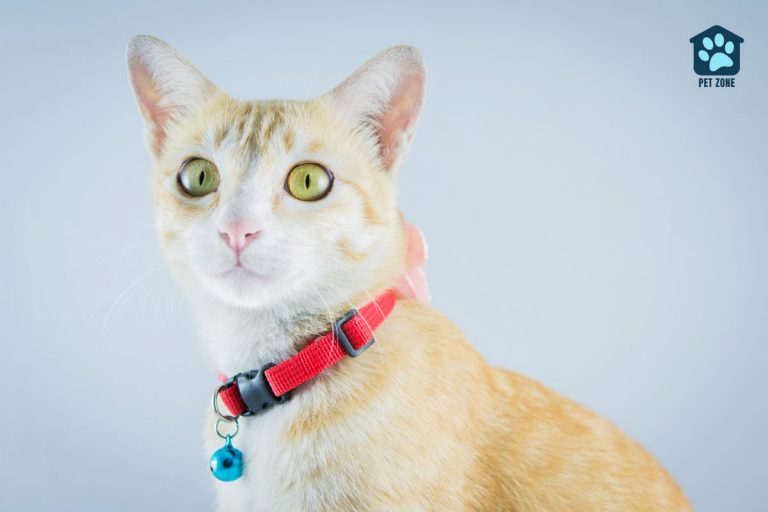
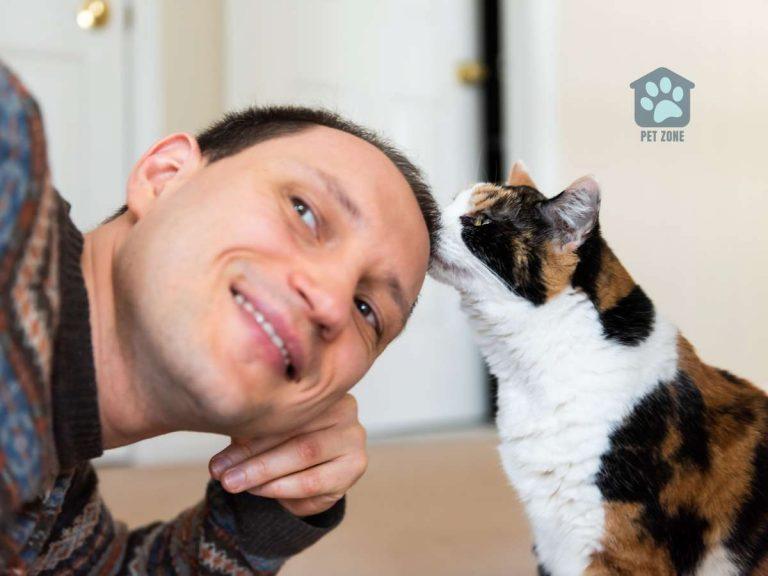
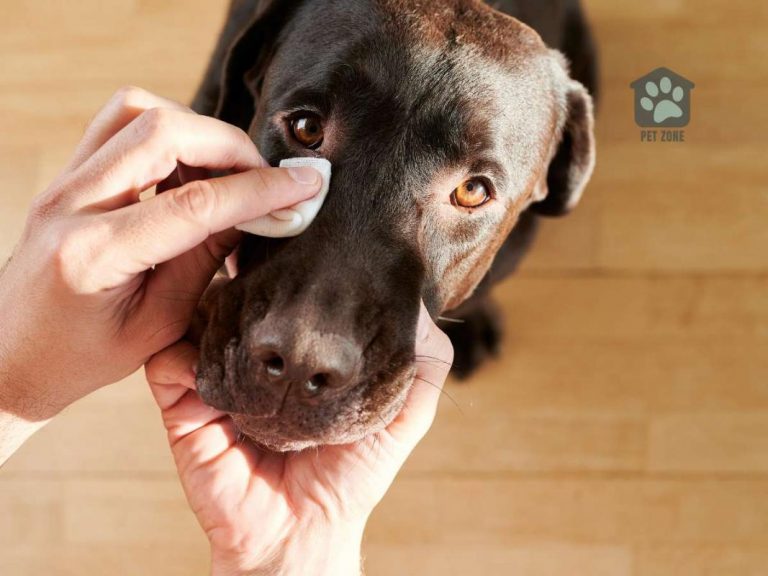
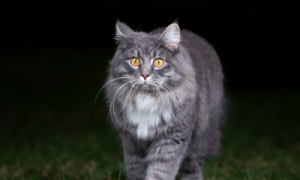
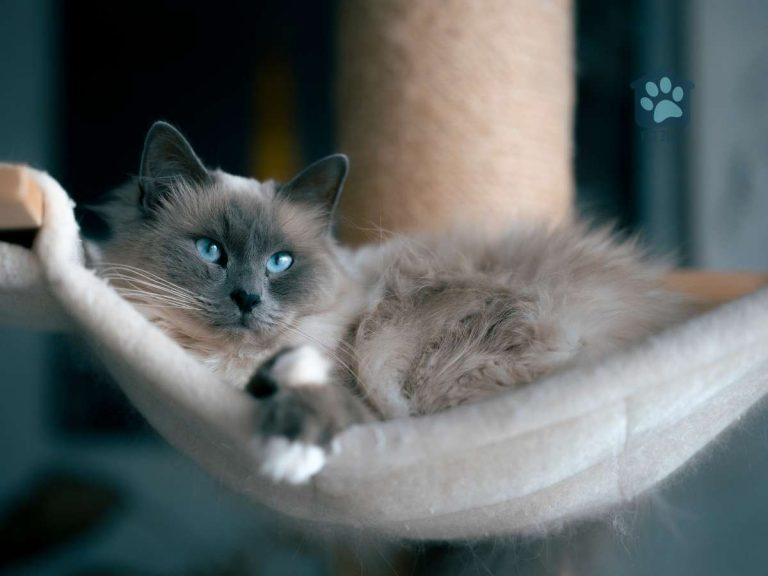
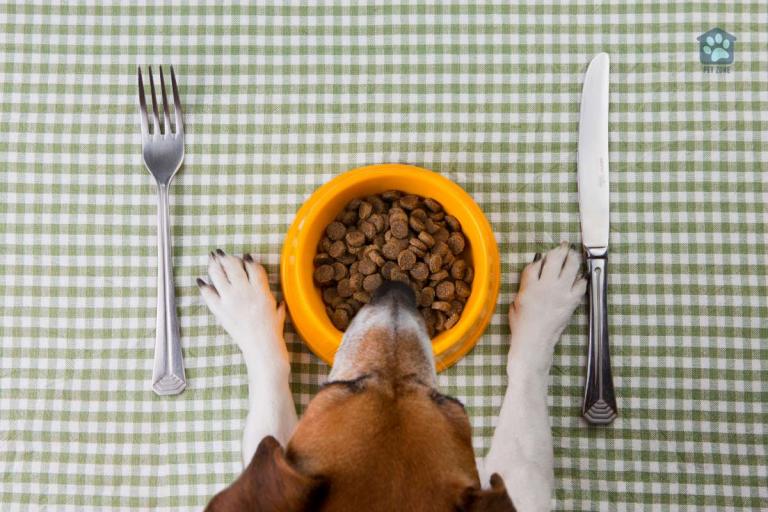
Yes, this is what my cat had hypothyroidism. I thought I was going to lose her, but after getting her treatment we still had her for a few more years!
I love all animals except reptiles, mostly I love cats and birds more. And, I always read and save your articles about cats, birds, and fish. Thank you for sharing these helpful articles!